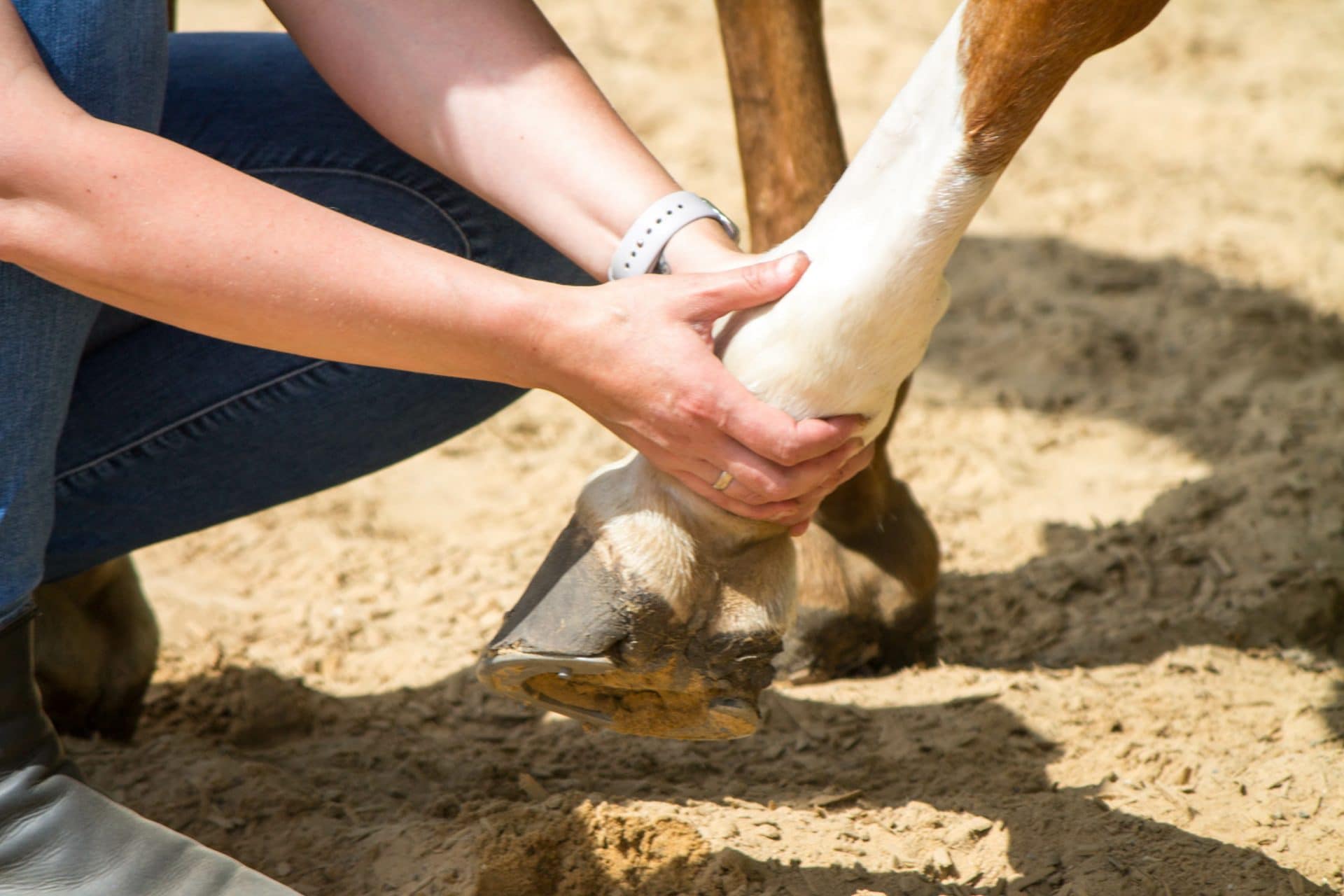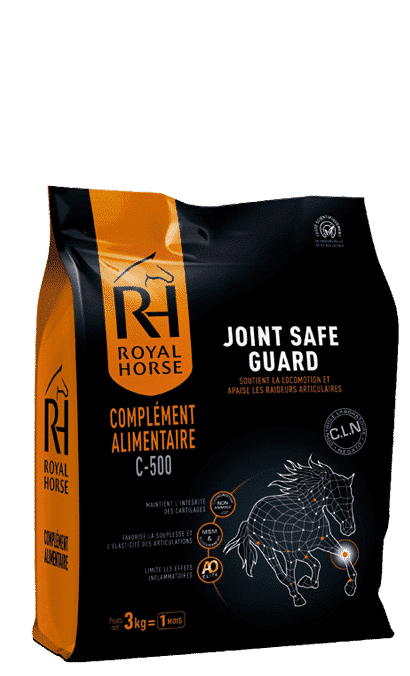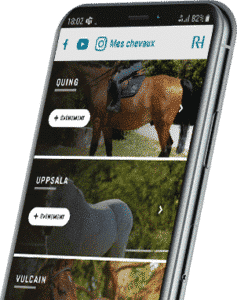Sporting horses, but also older horses, very often suffer from joint pain. It is important to take care of them from a young age to avoid your horse developing osteoarthritis problems as it ages.
What are the symptoms of joint pain in horses ?
If your horse has joint pain, it will mainly manifest itself as a cold lameness. This tends to disappear once your horse has warmed up. Stiffness in one part of the body may also occur, cracking when moving a limb, or swelling in a joint. Joint pain often occurs in the limbs (fetlock, hock, knee). It can also affect the back, especially around the thoracolumbar junction, or the neck.
What are the main causes of painful joints in horses ?
There are 2 main conditions that particularly affect the joints of horses and ponies:
- Osteoarthritis : progressive degradation of the cartilages of the joint leading to painful inflammation. As the cartilage can no longer perform its role as a shock absorber, the tissues and bones around the joint are modified. Osteoarthritis is irreversible, it is only possible to act on the comfort of the horse to relieve it.
- Arthritis : inflammation of the horse’s joints caused by bacterial infection. Bacteria can enter a joint, especially when there is a wound. Medication may have difficulty in reaching the deep-seated bacteria, a joint wash may be necessary to treat the inflammation.
To make a diagnosis, the vet may take x-rays (or ultrasound) of the painful areas of the horse. In the case of surgery, an arthroscopy will allow the degradation of the cartilage to be assessed.
What are the causes of osteoarthritis in horses ?
Old age or defects in conformation can lead to the development of osteoarthritis in horses. For example, poor posture (horses that are stooped or stooped) or clubfoot cause a poor distribution of pressure on the cartilage, which becomes damaged at an early stage. A horse that has suffered from osteochondrosis (failure to ossify during growth) may develop osteoarthritis in adulthood.
Many exogenous factors can also cause osteoarthritis in horses. The most frequent are:
- Too much stress: a horse subjected to more work than its joint can withstand, or working too early on a horse whose joints are still immature (e.g. race horses).
- Inflammation following a trauma (e.g. a sprain): a joint needs to rest before it can be used again. If the return to work is too rapid, the chances of developing osteoarthritis are high.
- Fatigue: too much work by the horse or insufficient warm-up.
- The nature of the ground: if your horse is working on a ground that is too hard, the repeated heavy impacts on the joint will eventually tire the joint. Conversely, a ground that is too soft can cause tendonitis or sprains.
- Poor foot care can also have serious consequences (feet that are too long, asymmetrically trimmed heels…)
- How to relieve your horse’s joint problems?
- To ensure your horse is more comfortable, several treatments are possible. They will not completely cure osteoarthritis, but they will help to relieve your horse. These treatments should be delivered by your vet, after careful examination of your horse.
- Non-steroidal anti-inflammatory drugs (NSAIDs).
- Infiltrations, injected directly into the horse’s painful joint. They can be based on hyaluronic acid which will have the effect of increasing the lubrication of the joint. They also exist with powerful anti-inflammatory drugs such as corticosteroids.
In addition to medicinal treatments, a horse suffering from osteoarthritis must absolutely continue to work to slow down the progression of the pathology. Stopping work altogether will only aggravate the osteoarthritis and increase the pain felt by the horse. Frequent work on flat ground is necessary to maintain the horse’s muscle mass. It is also important to avoid being overweight and to favour a life in the meadow so that the horse can move around more regularly. The farrier may also suggest a special shoe to relieve the horse’s joints as much as possible.
Which feed supplement should be used to relieve your horse’s joints ?
To treat your horse’s or pony’s joint problems, Royal Horse offers the C-500 – Joint Safe Guard feed supplement for horses.
A HORSE FEED SUPPLEMENT BASED ON NON-ANIMAL CHONDROITIN, FOR ETHICAL REASONS BUT NOT ONLY !
This horse feed supplement, unlike most products of this type on the market, uses non-animal chondroitin.
This choice was first of all guided by common sense, a horse is a herbivore and does not need to consume animal products, but if you dig a little deeper you will also realise that this non-animal chondroitin, due to its low molecular weight, is much more suitable and more available (approximately 40% more available). This property has a direct effect on its activity, which gives us an improved arthritic score of 30% on average compared to an equal dose of animal chondroitin.
30% BETTER ARTHRITIS SCORE WITH NON-ANIMAL CHONDROITIN!




